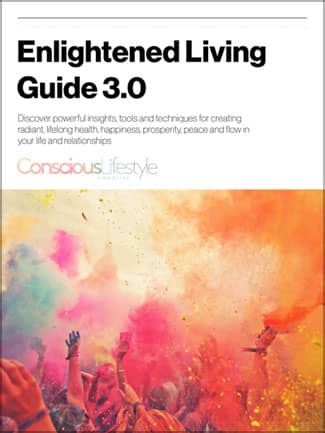The Keys to Lasting Love:
5 Practices For Creating Thriving and Passionate Long Term Relationships
BY GAY AND KATIE HENDRICKS, Ph.D.
 photo: zabalotta photocase.com
photo: zabalotta photocase.com
The Five Secrets of Lasting Love
Here’s the bottom-line truth we’ve discovered from our decades of work with couples in long-term relationships: People can endure long-term relationships in many ways, but they will only thrive if they do five things. In other words, you can grow older with your partner in many ways, but you will only grow closer and more creative through the steady practice of five actions, which are the keys for how to make love last.
We believe these five actions should be taught in every classroom in every school, every day. They most definitely should not be secrets we have to seek after or stumble into by trial and error. Yet they are. Almost none of us begin our love relationships knowing how to do these simple things, and our relationships are disastrous as a consequence.
Let’s permanently remove the veil of secrecy that has covered these relationship tips and skills, and begin a new era of intimacy in close relationships.
The First Secret to Lasting Love
If you want a close, vibrant, and long-lasting love relationship, you need to become a master of commitment.
We teach couples how to make love last by making real commitments to each other. There is an art to commitment, but almost nobody knows how to practice it. The first art of commitment is to spot and acknowledge the unconscious commitments that cause us to sabotage the harmony of our close relationships. In practical reality, the act of claiming ownership of an unconscious commitment changes a troublesome dynamic in a relationship faster than anything else.
The second art of commitment and another key for how to make love last is to make commitments you can stand by. Real commitments can only be made about things you have control over. Real commitments are verifiable. If you make a phony commitment, such as “I promise to love you forever,” you set up an impossible situation by promising an illusion. Nobody can commit to loving someone forever, because some days you won’t even wake up feeling loving toward yourself. Love is a mystery—part feeling, part spirit, part mind—and mysteries by their very nature are outside our control. A real commitment would be to commit to telling your partner the truth about when you’re feeling loving and when you’re not. This type of commitment builds long-lasting love and saves relationships while turning on the flow of intimacy and creativity.
The Lasting Love program offers a specific set of commitments we’ve researched with several thousand couples. When couples make these commitments, their relationships thrive.
The Second Secret to Lasting Love
If you want a long-term relationship that’s both close and creatively vital, you’ve got to become emotionally transparent. To go all the way to ultimate closeness and full creative expression, you must eliminate all barriers to speaking and hearing the truth about everything.
We teach couples how to make love last by listening to the truth about everything from their partners, and we teach them how to speak the truth about everything to their partners. Everything means everything: feelings, deeds, hopes, dreams. We ask them to consider any hesitation about telling or hearing the unvarnished truth to be a symptom of resistance to greater love and creativity.
We know this move is radical because it produces huge bursts of creative energy in everyone who tries it. As a practice, it has awesome power. As a concept, it quickly polarizes people—we’ve seen talk show audiences erupt in cheers and boos when we’ve said couples need to tell the truth to each other about everything. After twenty-plus years, though, we’ve still found no exceptions to the truth rule.
The Third Secret to Lasting Love
If you want a long-term relationship that’s both close and creatively vital, you must break the cycle of blame and criticism—it’s an addiction that saps creative energy as surely as drugs or drink.
We invite couples to turn their relationship into a blame-free zone. We teach each partner to take full responsibility for everything that occurs in the relationship, especially if it looks like it’s the other person’s fault. Radical responsibility—and the powerful creative energy it unleashes—comes from catching yourself in the midst of saying, “Why did you do that to me again?” and shifting to asking, “What am I doing that keeps inviting that behavior?”
In order to build lasting love, we ask couples to go a strict no-blame diet and stick to it. As a practice, this move liberates tremendous energy. In fact, we’ve seen life-altering breakthroughs come about when couples simply went one full day without criticizing or blaming each other. As a concept, the idea of giving up blame and criticism is often greeted with derision. “Impossible,” some say. “How boring,” say others. We have found that it’s actually possible, and anything but boring. The couple who is deeply addicted to blame and criticism has usually come to mistake the adrenalized drama of conflict for the flow of connection.
The Fourth Secret to Lasting Love
If you want a vibrant long-term relationship—one in which you feel close as a couple and creative as individuals—you’ve have to do one big thing first. You’ve got to take your attention away from fixing the other person and put it on expressing your own creativity. Even one hour a week of focusing on your own creativity will produce results. More than that will often produce miracles.
Nothing will sap your vital energy faster than squelching your creativity. Often, couples stifle their individual creativity in order to focus on fixing and changing the other person. Since this seldom produces tangible results, they devote more energy to the other person as a fixer-upper and less to individual creativity. When results are not forthcoming, they complain about the other person to third parties. They enter a dangerous cycle of complaint that has addictive properties—the more you do it the more things there are to complain about. Ultimately this leads to dissipation of creative energy and inner despair, and none of this is helpful as a way to make love last a long time.
By contrast, fully creative people don’t have time for complaint. Even if you’re not fully engaged in creativity (even, as our research indicates, if you’re doing only an hour a week of creative expression), you will see quantum enhancement of vitality within the relationship with every increase in creative self-expression.
The Fifth Secret to Lasting Love
If you want to create vital, long-lasting love, you must become a master of verbal and nonverbal appreciation.
We teach couples how to appreciate each other spontaneously and frequently. Although this may sound like a simple thing, it most definitely is not. In fact, it’s the last thing we teach in the program because it’s the hardest to learn. To utter a clear, heartfelt appreciation to another person is radical partly because it’s so rare. To receive such an appreciation from another person is equally challenging. Most of us have never seen or heard a rich flow of spoken appreciations in relationships. In fact, many people cannot recall a single instance of clear appreciation in their families of origin.
The simple solution is to speak a heartfelt ten-second appreciation to the other person, for no reasons other than to signify a commitment to appreciation and to open the flow of appreciation. In other words, the spoken appreciation is not to get a particular result from the other person. In reality, it produces powerful results very quickly, but it is important that the appreciation not be spoken as a manipulation or in expectation of a reward.
We teach couples how to make love last by learning to develop simple and complex appreciations, ranging from “I like the way you did your hair today” to “Throughout our lives together, I have been repeatedly amazed by how generous you are.” Although most couples can learn the art in an hour, they tell us that it takes the better part of a year’s daily practice to savor its full value.
Active Skills to Unlock Long-Lasting Love
Discovering the secrets to creativity, commitment and appreciation has been the most exciting professional and personal journey of our lives thus far. We are tremendously enthusiastic about sharing the secrets of these arts. This set of skills and relationship tips will equip anyone with a powerful and reliable method for enhancing the flow of connection in any relationship. Although we will focus mainly on love relationships, these skills also apply to business, friendship, parenting, and other areas where the flow of connection is paramount.
These five secrets have a revolutionary effect in any relationship in which they’re practiced. The five secrets move people quickly through the stuck places so that they can enjoy the profound beauty of genuine and lasting love.
Many people wrongly think that creativity, commitment and appreciation are passive states of being. They incorrectly assume that you’re either committed or you’re not, you’re creative or you’re not, you’re appreciative or you’re not. The good news is quite the opposite: These are active arts—skills you can practice from moment to moment—but they will ultimately help you create a long-term relationship and experience long lasting love.
Putting Commitment into Action
Let us show you what we mean with a brief story of the power of the new paradigm:
We’re sitting with a man and a woman in our office, trying to help them out of a marital jam so long in the making and so long overlooked that it felt like death hovered in the room with us. They’d been together fourteen years, and it had essentially been fourteen years of struggle. After hearing their story, we asked them to do something radical: We asked them to declare this marriage dead. “If you will declare this marriage dead, we will ask you a question that will bring a new one to life or help you walk away from the death of this one with fewer wounds.”
They were puzzled, but they went along with us and declared it dead. We paused for a full minute of silence to honor the death of a noble effort that turned awful. When our minute was up, all of us open our eyes. We asked them: “What did you learn from this marriage that you could not have learned any other way?”
The question caught them by surprise, and they answered it candidly. In the years since we first asked that question, we’ve heard people speak their reply in hundreds of different ways. No matter how they word it, people often come down to saying the same two things:
1. “I found out the hard way that I’m more committed to my old patterns than I am to loving and being loved.”
In other words, they gradually put a commitment to an old pattern (criticizing, overdrinking, controlling) ahead of the commitment to the relationship. They didn’t know how to make a conscious commitment to the relationship that was bigger than their unconscious commitment to their respective destructive patterns.
2. “I discovered too late that I didn’t get or give enough appreciation, and I waited until too late to do anything about it.”
In other words, they were unskilled and stingy in the area of appreciation.
Next, we asked them another question: “Given the demise of this marriage, and given what you’ve learned from it, are you willing to make a commitment to a new marriage? Are you willing to create a marriage in which you both feel fully appreciated and you make the relationship more important than your old patterns?”
We asked them to consider the question carefully, in the quiet of their own minds and hearts, then give us a clear “yes” or “no.”
After thirty seconds or so of silence, they spontaneously opened their eyes at the same time. They both nodded and said, “Yes.”
The air cleared. The energy in the room lightened as their faces relaxed. We all sat back in our chairs, knowing there’s work to be done to learn how to make love last but also knowing there was a new possibility that had not existed before.
Next, we asked: “Would each of you be willing to devote the same amount of energy to expressing your creativity that you’ve been using to fuel your conflict?
Again, they were caught by surprise. It hadn’t occurred to them that the exact same energy that’s required to drive conflict can be used to inspire and express creativity.
Eventually they agreed to turn their conflict energy into creativity energy, but they were quick to tell us they didn’t know how.
“Nobody does,” we say, “but once you make the commitment, the exact path always reveals itself.”
The miracle unfolded over the next two months and continues to blossom now. They made good on their initial “yes,” using the new techniques of commitment and appreciation. Within two months they had created something brand new, and during a four-year-later follow-up session, they said it was unimaginably better than their “first” marriage. In fact, they said that because they didn’t understand commitment and appreciation, the first marriage had been doomed from the beginning. Even though their first marriage had lasted fourteen years and this new one only four years so far, it felt as if the first one never existed.
That’s the power of commitment, the first principle of the new paradigm of long-lasting love. Now, take a closer look at the appreciation.
Alternating Cycles
Human beings alternate between two ongoing cycles: a cycle of complaint or a cycle of appreciation. The ratio between the two—the amount of time we spend in each—determines how happy we are and how much happiness we inspire around us. It also affects how much creativity we express and inspire in others. It’s also a key ingredient for how to make love last.
The cycle of complaint goes as follows:
We want or need something from our partner, such as more communication, more understanding, more touch, more freedom. For some reason, however, often lost in the mists of childhood, we’re unconsciously committed to not getting those things. Inevitably our partner fails to give us what we want, so we complain about it and criticize our partner for his or her faults and failures.
The situation usually doesn’t improve (or if it does, it improves only temporarily before returning to baseline or worse). We complain and criticize more, which leads to greater awareness of our partner’s insufficiencies. Armed with more detailed evidence, we escalate our barrage of criticism and complaint.
We’ve worked with couples who had been recycling the same complaint for decades. Our conclusion—which surprised us at first—is that nobody ever gets better by being criticized, and it certainly doesn’t inspire long-lasting love. Almost everybody who criticizes, though, is convinced that if they keep it up long enough it will have the proper motivational effect on the other person.
Let’s look at a better way. The cycle of appreciation, another ingredient for how to make love last, goes as follows:
We look for things to appreciate about our partners. We discover new ones or notice old ones anew. We speak our appreciations clearly. We see more things to appreciate, which leads to greater awareness of our partner’s value.
Living in a cycle of complaint consumes the very energy needed for creative expression. Living in a cycle of appreciation frees up energy that each person can use for individual and mutual creativity.
Appreciation in Action
What most of us need to know is this: We have a choice about which cycle to live in. What most of us really need to know is how to shift quickly out of the cycle of complaint and into the cycle of appreciation, which has the power to create long lasting love.
We’ve been running a large-scale research survey, via our website, on the subject of appreciation. One of our research associates sent Gay a note a while back in which she articulated her own reaction to something that happened at a dinner with us. Here’s what she wrote:
Speaking of appreciation, I remember the first time I ever saw a clear example of it. The three of us were in a restaurant together when we first met. At one point in the conversation Kathlyn said something funny. I vividly remember your turning to her and saying, out loud, casually, as if it was the most natural thing in the world: “One of the things I really love and appreciate about you is your fantastic sense of humor. You make my life so much richer because of how you look at the world. I was just feeling grateful for that and wanted you to know it.” Kathlyn smiled warmly and thanked you, and then you both returned to our previous conversation.
I sat there perplexed for a moment. Although I’d seen strong, stable marriages before, I’d never seen this kind of communication. It’s not the way most people talk, nor is it really the way most people think, either. Later, I realized that I was waiting for the punchline. I expected you to follow your appreciation with something teasing or funny or even insulting, and when it didn’t come, I didn’t know quite what to think. My mind was thinking: “Wait a minute… so you’re just going to appreciate her? Out of the blue? For no reason? Without wanting anything in return?” I think I learned something brand new about relationships that day.”
Embedded in her observation are important insights into how to make love last and a new paradigm of relationships. For example, it surprised her to see one of us appreciate the other “out of the blue” and “for no reason.” In other words, she witnessed appreciation for its own sake, with no other agenda running as a sub-text of the communication. In addition, the appreciation was spoken “without wanting anything in return.” In other words, it was not designed to produce an outcome or result. This latter observation distinguishes the art of appreciating from the related art of praising.
There is no question that praise is a useful and important skill—many books are available on how to do it effectively. For example, in the classic book, The One-Minute Manager, authors Ken Blanchard and Spencer Johnson show how to use praise to reward good performance and shape employees’ behavior in a positive direction. In Thomas Gordon’s books on parent effectiveness and teacher effectiveness, he presents a methodology for influencing children’s behavior by the power of praise. That’s not what we’re talking about.
The art of appreciating operates in a different paradigm, which may be why there aren’t many books about how to do it. As we will show later, the paradigm in which appreciation occurs is not linear, nor is it intended to produce a specific result (although it is one of the factors that builds long-lasting love). It does not fit within a reward-and-punishment schema. You shift into the new paradigm by making a conscious decision, a commitment to base your relationships on an ongoing flow of positive energy—of genuine love. You choose to focus on appreciation “for its own sake,” not to influence the behavior of the other person. In spite of this, or perhaps because of it, the skills of active appreciating and conscious committing actually have a profoundly positive effect on other people’s behavior. Things change for the better the moment either of these skills enters a relationship.
Here is an example of appreciation for its own sake, drawn from our own relationship:
Gay: One morning I awoke early to do some writing. After an hour or so I took a break to meditate, and during meditation an idea popped into my mind. I wrote “Thank You!” about a dozen times with different-colored ink, and then cut the paper into strips with a pair of scissors. Each strip had a “Thank you!” on it. I put a “Thank you!” on each step of the stairs Kathlyn would take after she woke up. I was upstairs when I heard her sleepy footsteps approach the steps. Suddenly I heard a giggle, and then another and another as she came up the stairs and encountered each of my different thank yous. When she came into the kitchen she was absolutely aglow.
A New Paradigm of Relationships
We believe that concepts such as conscious committing and active appreciating constitute a shift in context that fundamentally alters the way in which people regard intimate relationships and contributes to how to make love last. This new paradigm is what caught our research associate’s attention that night.
Prior Contexts
Up until very recently, the context of intimate relationships was clouded by survival fears, rather than a desire for lasting love. Although survival is not the main priority for millions of people when they wake up each day, it still is for many others. Fears about hunger, deprivation, and other survival issues still shape the nature of relationships. In times past, our ancestors paid less attention to psychological or spiritual fulfillment. Techniques for problem solving were essentially nonexistent.
Things changed as the twentieth century gained momentum. From our parents’ time up until the present, the context of relationship shifted toward “luxury items” such as the fulfillment of potential. Movies, literature, and other arts began to celebrate the transcendent possibilities of relationship—symbolized by the graceful dancing of Fred Astaire and Ginger Rogers. The Freudian revolution promised to offer tools for handling problems when missteps caused us to tread on each other painfully.
The New Context
It’s a big shift from survival to fulfillment. In the survival context, life is lived in waves with things like fear and hunger as the crests and periods of relief from those things as the swells. In the fulfillment context, life is lived in waves of fulfillment and the hunger for more. We believe, however, that the context is about to make an even larger shift, opening access to a new force field. This new force is electric with previously hidden potential. We believe that relationships in the new millennium will shift toward a focus on appreciation and celebration. The focus will be on the flow of connection.
The couples who come to us now want more than traditional relationship tips and problem-solving skills. As people become more sensitive to the flow of energy inside themselves and in their relationships, they are looking beyond traditional therapeutic techniques to truly create long-lasting genuine love. They want life skills they can use to awaken and enhance the flow of connection. The arts of committing and appreciating are the best ways we’ve found to deepen the flow of connection. A single act of skillful committing or appreciating instantly shifts the relationship into a greater sense of flow and creativity. That’s the domain of the new paradigm.
Practically Speaking
It only takes a split second to make a commitment to enhance your relationships. The moment changes everything, though, because you shift out of earlier contexts, such as survival and the search for fulfillment, into a new zone, full of new possibilities and based on entirely on new questions.
In the survival context, relationships exist inside the question, “What must we do to survive?” Considerable time is spent shoring up defenses against hostile forces and carrying out chores in the rut of routine. There is little time or energy to search for fulfillment. You are watching and listening for threats to your survival.
In the fulfillment context, we live inside different questions, such as “What must we do to fulfill our potential?” and “How can we solve the problems that are the barriers to expressing that potential?” Considerable attention is paid to the past, where the barriers are presumed to have been erected. Considerable energy is consumed in power struggles about which partner bears responsibility for the barrier. You are watching and listening for clues on how to meet the needs of others and whether your own needs are being met.
In the new paradigm, the questions are profoundly different than survival or fulfillment. Your relationships live within questions such as:
+ “What commitments do I need to embrace that will allow the relationship to flourish?”
+ “What do I really admire and love about my partner?”
+ “How can I best appreciate those qualities and actions?”
+ “What can I do to make myself more available for appreciation?”
Although you have good problem-solving techniques at your disposal, you do not focus as much on problems. Instead, you look for what’s right in the other person and in the relationship. You embark on a shared quest to experience lasting love by finding each other’s essential qualities so that they may be skillfully appreciated.
This article is excerpted with permission from Lasting Love: The Five Secrets of Growing a Vital, Conscious Relationship by Gay Hendricks and Kathlyn Hendricks.
About The Author
Gay Hendricks, Ph.D., has been a leader in the fields of relationship transformation and body-mind therapies for over 45 years. After earning his Ph.D. in counseling psychology from Stanford, Gay served as professor of Counseling Psychology at the University of Colorado for 21 years. He has written and co-authored (with Katie) 35 books, including the bestseller Conscious Loving, used as a primary text in universities around the world. In 2003, Gay co-founded The Spiritual Cinema Circle, which distributes inspirational movies and conscious entertainment to subscribers in 70+ countries. Gay has offered seminars worldwide and appeared on more than 500 radio and television shows, including Oprah, CNN, CNBC, 48 Hours and others. Visit his website: hendricks.com
Katie Hendricks, Ph.D., BC-DMT, is an artist of life who creates transformational theater events around the world. Passionate about the power of embodied integrity and emergence, she continuously promotes creative expression in service of a direct experience of life, wholeness and evolutionary collaboration. She has been a pioneer in the field of body-mind integration for over forty years. Katie has an international reputation as a seminar leader, training professionals from many fields in the core skills of conscious living through the lens of body intelligence. Katie earned a Ph.D. in Transpersonal Psychology and has been a Board Certified-Dance/Movement Therapist of the American Dance Therapy Association since 1975. Visit her website: hendricks.com


















